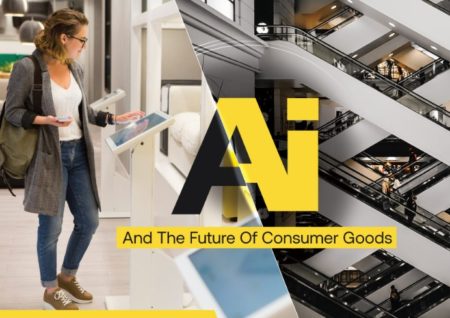November 8, 2019 – Demetrius Harrison works at NowSourcing, and writes about a wide range of topics accompanied by infographics. His contributions on the web include content for a variety of businesses, blogs, and online publications. In this his second contribution to 21st Century Tech Blog he describes how commerce business models are being altered by the emergence of artificial intelligence (AI) algorithms.
Every business wants to raise the bar on customer service. But not every business has incorporated AI into that effort despite the data that shows its benefits. That’s quickly coming to an end as retailers in the last two years have increased AI usage by 600% with 15% of companies reporting their organizations spearheading investment and adoption of AI. One in four large retailers is putting 10% of the budget into AI projects. So it appears that the future of customer service will be dominated by AI. Why? Because AI systems improve customer satisfaction, reduce complaints, and lessen churn. That’s why chatbots and virtual assistants are becoming the norm in customer service, making human-to-human interaction a thing of the past.
Some examples. Walmart’s AI-based “Intelligent Retail Lab” can process information at a rate equivalent to downloading 27,000 hours of music per second. Joining Walmart are H&M, Amazon, Brown-Forman, Google, and Target, a mix of online and bricks and mortar businesses. And customers are proving to be receptive with 73% of consumers preferring brands that remember personal data they have shared to improve the shopping experience.
By 2021, forecasts indicate that customer service interactions through AI will increase by 400%. The level of sophistication is quite remarkable with examples like McDonald’s outdoor drive-thru menus which will vary what is displayed based on time of day, weather conditions, current restaurant traffic, and menu item trending. Kroger is even implementing “Smart shelf” sensors with a shopping app that can identify individual customers, provide personal pricing information, and suggest products to users as they wander through a store.
By 2023, 95% of supply chain vendors will also be adopting AI to improve their day-to-day operations.
To learn more about AI and its impact on commercial consumer-oriented businesses, take a look at the following infographic.










